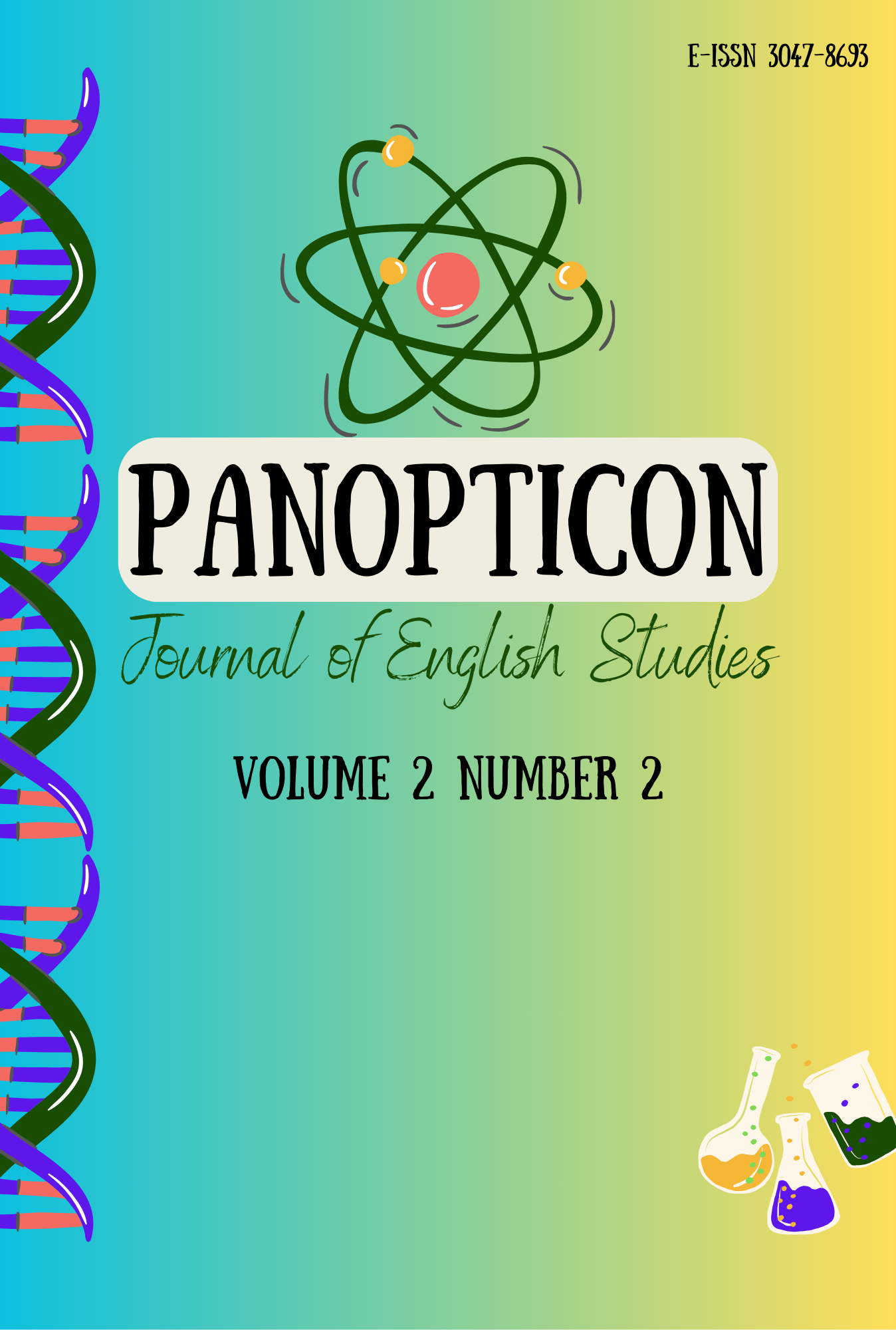Identity Crisis Portrayed in the Graphic Novel American Born Chinese
DOI:
https://doi.org/10.32493/pnp.v2i2.42726Keywords:
identity crisis, eight stages of development, attitude and thoughtsAbstract
This study aims to analyze the issue of identity crisis in the graphic novel American Born Chinese (2006) by Gene Luen Yang. Utilizing a qualitative descriptive method, data were meticulously collected and analyzed through Erik Erikson's theory of the eight stages of psychosocial development, framed within a psychoanalytic approach. The primary focus is on the main character, Jin Wang, whose identity crisis becomes evident upon his transfer to a new school where he is surrounded by a predominantly American environment. This transition triggers a profound sense of dislocation and self-doubt, as Jin struggles to reconcile his Chinese heritage with the cultural expectations of his peers. His identity crisis is manifested through various attitudes and thoughts, such as his desire to fit in and his internalized shame about his ethnicity. These behaviors reflect Erikson's concept of identity versus role confusion, a pivotal stage in adolescent development where individuals grapple with their sense of self. The study's findings underscore the psychological turmoil faced by Jin as he navigates the complexities of his dual identity. This analysis highlights the broader implications of cultural assimilation and the challenges faced by immigrants in preserving their cultural identity while seeking acceptance in a new societal context
References
Adams, G. R., & Marshall, S. K. (1996). A developmental social psychology of identity: Understanding the person-in-context. Journal of Adolescence, 19(5), 429–442. https://doi.org/10.1006/jado.1996.0041
Berg, B. L. (2001). Qualitative Research Method For The Social Science. Tokyo: California State University, Long Beach.
Erikson, E. H. (1950). Childhood and society. New York: Norton
Yang, G. L., & Pien, L. (2006). American Born Chinese. First Second.


